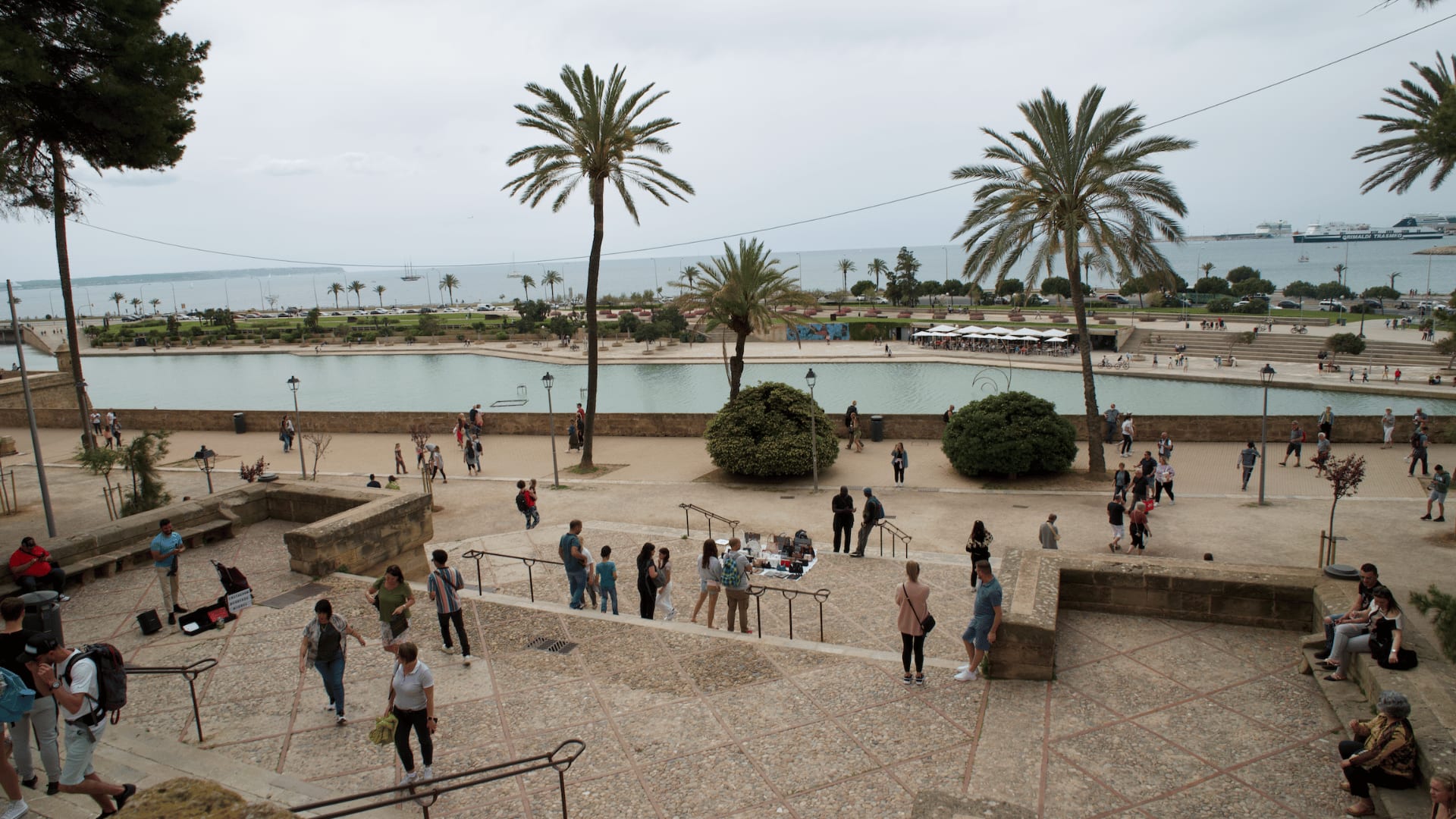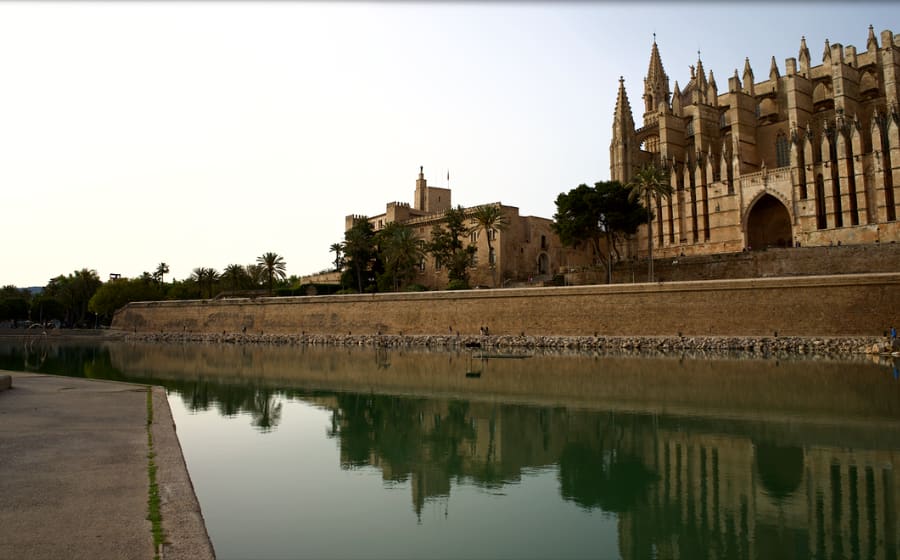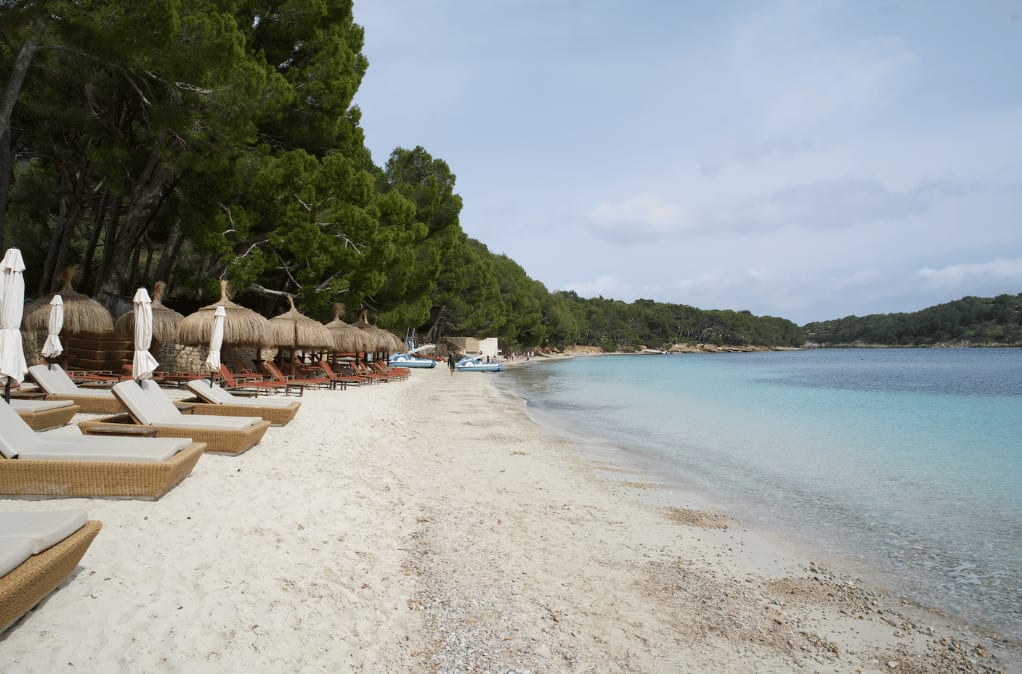List of Public Holidays in Mallorca (2023 and 2024 calendar)
February 28, 2023
Win a FREE Trip to Spain!
Exciting Announcement! For the first time, we're thrilled to offer exclusive trips to the heart of Spain - an experience like no other. This isn't your typical tourist journey; it's a unique opportunity to immerse yourself in authentic Spanish culture, alongside real locals and our passionate team.
But there's more! Simply by requesting information about this amazing trip, you'll be entered into a special draw to win a Fully Paid Trip to Spain for Two. And that's not all - everyone who inquires will receive an exclusive bonus gift, valued at $500, available only now.
Ready to Discover the Real Spain?Click Here ↑ to Request Information & Enter the Draw!
Let me guess, you are planning a trip to Mallorca and want to have everything planned until the last string.
It would help if you kept in mind the local holidays when visiting Mallorca to avoid surprises such as reduced opening hours of landmarks and tourist attractions, closed stores, etc.
For this reason, I have put together a complete calendar with the most important dates for 2023 and 2024! Also, I included a description of all of them. In case you’re already aware of a specific holiday but need to know what it is about or what you can expect in the city.
This way, you will ensure to catch everything and get the best out of Mallorca’s top festivities.
Remember that public holidays can still vary depending on the year. However, this post will show all the public holidays in Mallorca annually.
*At the end of the article, I have included two calendars with the holidays of 2023 and 2024.
Table of Contents ▼ ▶
New Year’s Day - Día de Año Nuevo
January 1

New Year’s day is a celebration held every year in Spain on January 1. It is the same day for all the regions. As the name indicates, it consists of the celebration of a new year and the celebration of the end of another year.
January 1 is a holiday, Spaniards don’t go to work, and they use this day to rest and renew their energies for the following year. This day everything is closed, even the supermarket, so if you have to do some groceries, I recommend you go the day before.
January 1 is the day that follows the New Year’s Eve celebration on December 31. On New Year’s Eve, people in Mallorca, residents, and visitors, usually enjoy watching the fireworks from the top of the Cathedral and welcome the New Year by eating 12 grapes, one for each chime. See why:
Other areas of the island have fireworks displays on beaches and towns. It is typical for island restaurants, bars, and nightclubs to offer special menus and events to celebrate the New Year. Whatever you decide to do to celebrate this great day in Mallorca will be a great choice.
If you are interested in this topic, I invite you to read several posts we’ve done that are dedicated to New Year’s Eve in Spain. I’m sure you will love them and learn many interesting facts.
Epiphany - Día de Reyes
January 6
Epiphany day is the favorite day among children during Christmas time. It is a Spanish tradition celebrated every year on January 6. In Spain it is known as “Día de los Reyes Magos.”
In Mallorca, as well as in the main cities and towns of Spain, Melchior, Balthazar, and Gaspar can be seen in the streets in a beautiful parade. The parade takes place during the afternoon of January 5.
The Three Wise Men go around the streets greeting the little ones, giving away candy, and filling the island with colors and joy.
Once the parade is finished, the celebration continues with concerts and events throughout the city until midnight.
It is very common to write a letter to the Three Wise Men. The little kids write a letter where they tell how good they have been during the year, and they ask for different gifts.
They will bring them lots of gifts if they have been good kids, but if they have been naughty during the year, they will get them coal.
On the night of January 5, Spanish families prepare their homes for the arrival of the Three Wise Men and their camels. People like to give them wine, milk, carrots, candy, cookies… Like this, the kings and the camels will continue their journey on a full stomach.
Everyone wakes up excited to see what the kings have left the following day. It is a lovely and exciting tradition, especially for the little ones!
Roscón de Reyes is a typical sweet that every Spaniard eats these days. Is one of my favorite sweets on these dates.
Usually, families get together on January 6 after opening their presents and eating the Roscón. A Christmas figurine is inside; if you get it, you will have good luck that year.
Celebrate Dia de los Reyes Magos for a Magical Time in Spain
The Feast of St. Sebastian - Fiestas de Sant Sebastià
January 20
The day of Sant Sebastià is a festivity in some regions of Palma as it is the patron saint of Palma. It takes place every year on January 20.
However, the patron saint festivities are celebrated throughout the half of January with different activities and events.
Sant Sebastià is a local festival. It is a holiday celebrated in Palma and Costix, and Es Capdellà, as it is also their patron saint.
On January 19 begins the big party, popularly known as “Revetla.” The Drac de na Coca, cabezudos, glosadores, and xeremiers will give the starting signal and light the big bonfire that will start the festivities of the patron.
At night, the streets of the city will offer free concerts. But not only shows in addition to that, but there will also have festivities which include parades, exhibitions, bike routes, and much more.
If you are in Palma on this day, I recommend you go!
Day of the Balearic Islands - Día de las Islas Baleares
March 1st
Every year, March 1 is the official holiday of the Balearic Islands. Cultural, sporting, and gastronomic activities are organized in the Balearic Islands and usually start some days before.
It commemorates the Statute of Autonomy of this autonomous community, proclaimed in 1983.
This day is a unique opportunity to visit the islands’ main official buildings, museums, and most emblematic places. Since, a good part of these enclosures carry out open days to show their valuable patrimony for approximately 10 days.
Monasteries, art galleries, museums, and buildings such as the Consell de Mallorca, the Ajuntament de Palma, and the Bellver Castle are free.
Also, depending on which island you are on, there will be some activities or others:
- Palma: A typical cuisine exhibition is organized in the park of Sa Feixina. You will see the participation of several restaurants on the island as well as a farmer’s market located in Passeig Sagrera. In this spectacular market, you can find local gastronomy and handicraft products. In addition, many other exhibitions and artistic and sporting events are held during this time.
- Menorca: Many activities, such as a guided tour of the es Milà wind farm, trotting races at the Maó Hippodrome, a Menorcan dressage exhibition in es Castell and guided excursions to beautiful places such as the Cova des Coloms, as well as musical performances.
- Ibiza: Many interesting activities to do on the Day of the Balearic Islands. Sailing regattas in Santa Eulalia, basketball and chess tournaments, trot trophy and craft market at the Hippodrome de Sant Rafel and guided visits to the Museu Monogràfic del Puig des Molins.
Maundy Thursday - Jueves Santo
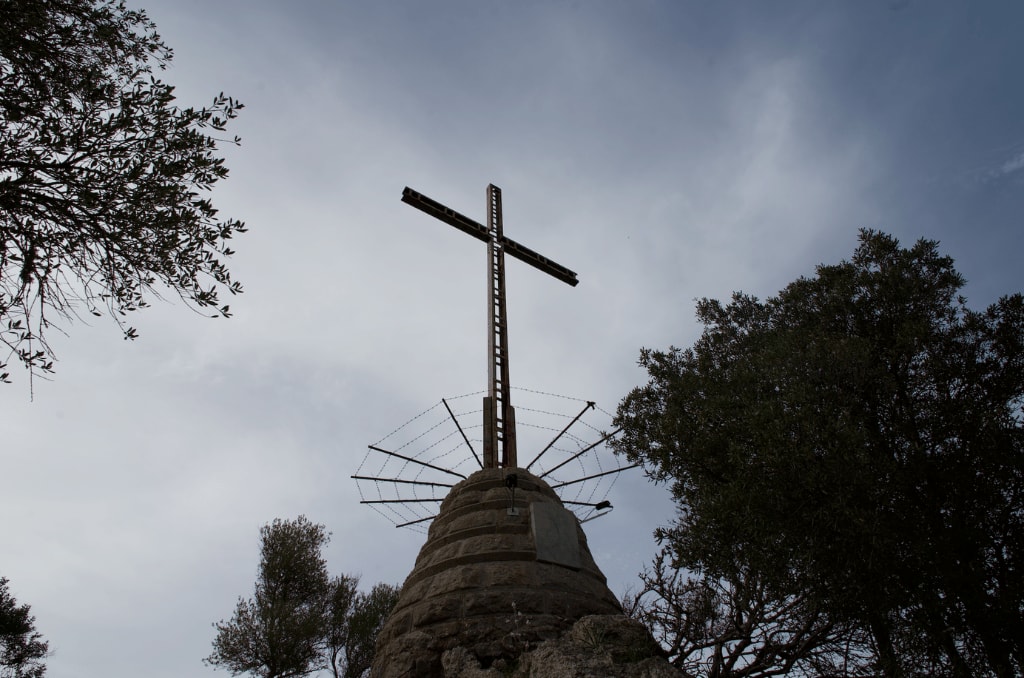
Holy Thursday is a Christian feast celebrated annually on the Thursday before Resurrection Sunday during Holy Week.
On this day, the Catholic Church commemorates the institution of the Eucharist at the Last Supper and the washing of the feet performed by Jesus.
Maundy Thursday is the fifth day of Holy Week. Before Holy Wednesday and followed by Good Friday, which we will talk about next.
If you are interested, check out our post about Easter in Spain!
Why is Easter so Special in Spain? Holyweek Customs and Best Cities
On Holy Thursday, the capital Palma de Mallorca becomes the center of social life on the Balearic island.
Every year, the streets are filled with processions organized by different brotherhoods in the afternoon.
Since the 16th century, the spectacle has taken place in the streets of the old town. Thousands of people attended and enjoyed this popular tradition.
I like going to processions nationwide, but you should take advantage of it, especially in Mallorca!
Good Friday - Viernes Santo
Good Friday is a Christian holiday commemorating Jesus of Nazareth’s death. It is celebrated during Holy Week, after Holy Thursday, and before Easter Sunday.
This day is essential as it is a day to remember the passion and death on the cross of Jesus of Nazareth, the Messiah. As a penance, the Catholic Church commands its faithful to keep fasting and abstinence from meat.
Depending on the region you are in, Good Friday is celebrated differently.
In Mallorca, a re-enactment of the Passion of Christ takes place on the steps of the Cathedral of Palma at noon, followed by the procession of the Holy Burial that leaves the church of San Francisco.
Easter Monday - Lunes de Pascua
April 10
During Easter Week in Mallorca, there is Easter Monday which is synonymous with “Pancaritats.” It is an autonomous festivity in Mallorca.
To know about its origin, we have to go back in time. Everything started on April 10 in the Middle Ages.
On that day, the Jurors of the city and kingdom of Mallorca carried out, in the Temple of Palma’s church, a bread distribution to the poor, from where the name of pancaridad (bread with charity) originated.
Nowadays, this festival is celebrated, and it is a popular gathering outside the village. There is usually a meal celebrated in the days after Easter in many towns of Mallorca, known as the “third party” of Easter, where people eat typical Easter foods.
Participants choose emblematic places, often fountains, hermitages, or sanctuaries, to perform their traditional dances.
Some of the towns of Mallorca that carry out this activity are; Palma at the Bellver Castle, Sa Pobla in the hermitage of Crestatx, and Campanet in the hermitage of Sant Miquel.
You must attend this celebration. It will help you to better understand the Spanish culture in this Mallorca festival.
Labour Day - Día del Trabajo
Labor Day, also called Workers’ Day, was first celebrated on May 1, 1889. Since that moment, it has been celebrated almost every year on May 1.
It is essential to mention that this celebration was banned for four decades. In 1978, after the dictatorship, the festival was finally relegalized and reinstated as a national holiday.
Since that year, every May Day throughout the country, including Mallorca, has been marked by protests and demonstrations.
People attend rallies to celebrate social advances, claim workers’ rights, and demand better working conditions.
But where does this day come from? The day was created in honor of the struggle of the working class, which, through protests, achieved a reduction of the working day to 8 hours.
If you want to know everything about this celebration came to Spain, read the following article to learn how it is celebrated, plus some curious facts:
Assumption Day - Asunción de la Virgen
August 15
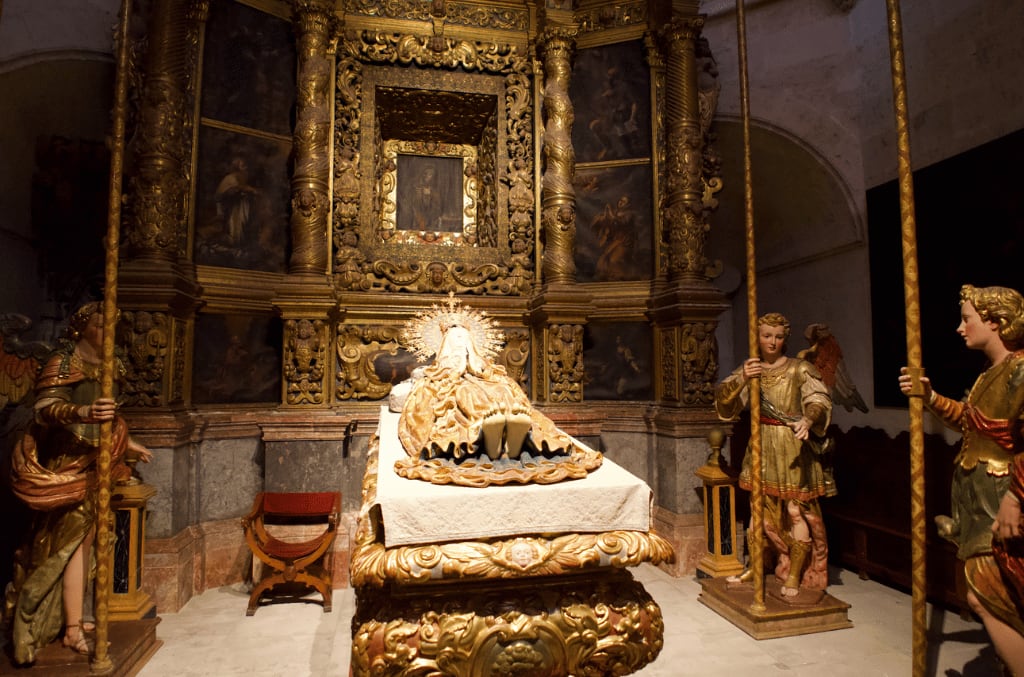
In the Catholic Church, this celebration refers to the ascension to heaven of the body and soul of the Virgin Mary.
On this feast day, the most important churches on the island organize processions with the image of the Virgin Mary.
In the Cathedral of La Seu, and in many churches you will see the image of the Virgin Mary in a sleeping pose. These figures are “Els Llits de la Mare de Déu,” meaning “The Beds of God’s Mother, " symbolizing the end of her earthly life.
In Valldemossa, a town in Mallorca, there is a procession called “Sa Processó de les Crestes,” which sees the figure of Mary carried through the town before entering the church.
In another town, Montuiri, you can see the “Ball de Cossiers” before the sleeping Virgin.
And, if you miss it, don’t worry, as you will have another opportunity on August 16 for the festival of San Roque.
All over Mallorca, during this festival, you can see craft fairs, xeremiers, children’s activities, traditional dances, and live music in many villages. Don’t miss it!
Hispanic Day - Fiesta Nacional de España
October 12
The National Day of Spain is the official name given to the National Day of Spain.
It is also known as the Day of Hispanidad, as Spain was called by the Romans Hispania. Every year has been celebrated on October 12 since 1982.
The Army celebrated in the Castle of San Carlos, in Mallorca, the military acts to celebrate the National Holiday.
The parade was presided over by the general commander of the Balearic Islands, Fernando Luis, and the delegate of the Government, the mayor of Palma, and other political authorities.
This popular event also paid tribute to the fallen. If you come to see this, you will be able to see the military of the three armies participating.
People in Mallorca love to attend this spectacular event and the streets are full of energy and impressive vibes. Visit our article about the Spanish day for more info!
All Saint’s Day - Día de Todos los Santos
November 1st
Every year on November 1, All Saints’ Day is celebrated. It is a day to remember those who are no longer with us.
The most popular thing to do in Mallorca and the rest of Spain is to visit the cemeteries with flower bouquets to see loved ones who have passed away. The cemeteries are filled with flowers and colors.
In the Mallorcan tradition, All Saints’ Eve is a famous festival known as the “Nit de les Ànimes” (Night of the Souls), which was born out of the belief that on these dates, the souls of the ancestors returned to the home where they were born.
It is a tradition to light candles, often inside seasonal fruits, such as pumpkins, which are usually decorated and placed at the door of the houses, in the rooms, or in the kitchen. Not the same as Halloween, in case you’re wondering! (Read more)
This was done to guide the little souls of the deceased during their visit.
One of my favorite sweets in the world is the one that is made during this time. October in Mallorca and Spain is generally synonymous with “buñuelos de viento” and “Huesos de Santo.”
These typical sweets are eaten for the Day of the Virgins; we can find them in supermarkets or bakeries. I like the “Huesos de Santo,” but both are really good, and you should try them!
And, if you’re wondering about the most famous traditional pastry in Mallorca, try the typical “Ensaïmada.” We went to Horno Santo Cristo, one of the best places to get it, and it was amazing!
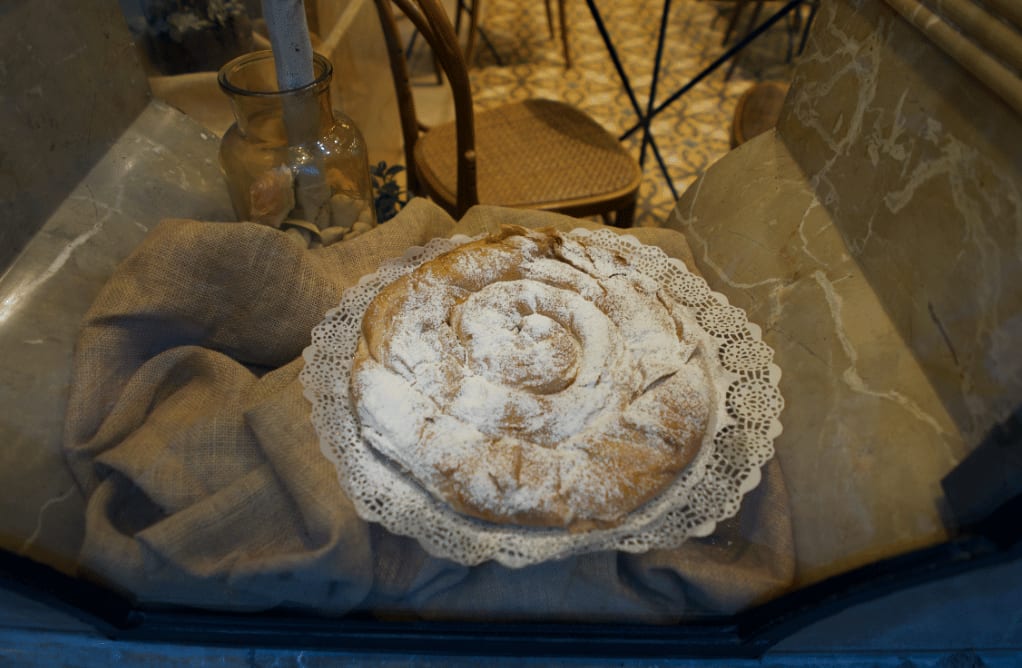
Constitution Day - Día de la Constitución Española
December 6
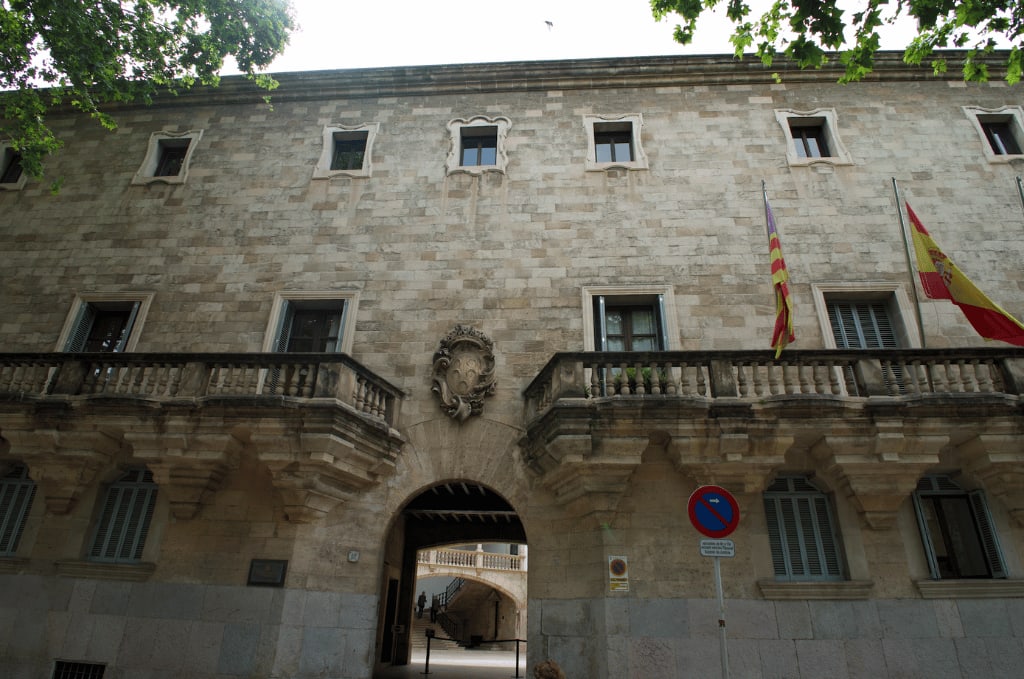
On the day of the constitution, the rights and obligations of all Spanish citizens are set out. It is a National Holiday that is celebrated every December 6.
The first time it was approved was in 1978, and it is still in force today, although it has undergone many reforms over the years.
If you are interested in the Spanish Constitution Day, its origin, how it is celebrated, plus some interesting facts, read here:
Constitution Day in Spain: Origin, Celebrations and 11 Fun Facts
Immaculate Conception Day - Día de la Inmaculada Concepción
December 8
Every December 8 is celebrated in Spain, the Day of the Immaculate Conception, a national holiday better known as the “December long weekend” or “the Constitution long weekend.”
This is one of the most important days for Catholic Christians since it is not only a non-working day, but the worship leads them to perform liturgical acts of the religion.
But what does this religious holiday commemorate? It is a religious holiday that celebrates the birth of the Virgin Mary. It is one of the most awaited religious celebrations.
On the 8th, a traditional mid-afternoon procession takes place through the streets of Mallorca and other Spanish cities such as Madrid. In it, you will see the image of the Virgin.
All these acts are usually accompanied by solemn masses and continue until several days later.
In Spain, the Immaculate Conception is the national patroness. That is why on this day, you can see priests wearing a purple chasuble instead of the traditional pink chasuble for the masses.
In addition, the Virgin is also the patron saint of the Spanish Infantry, which is very important for the people in Mallorca.
Christmas Day - Día de Navidad
December 25

As the name indicates, Christmas is the official day of Christmas of Baby Jesus’s birth. It is celebrated on this day nationwide.
The tradition of practically everyone in Spain is to meet to eat with the family and enjoy this special celebration together.
We are fortunate to have some of the most elegant places to watch the Christmas lights. There are many rooftops in the best hotels of Mallorca where you can stop and stare at the fireworks and enjoy the Christmas atmosphere.
What could be better than spending your Christmas in a fabulous island hotel? Here are our top recommendations in case you need help finding the right one!
You will see the whole city decorated with thousands of lights. You’ll find great Christmas markets in Puerto Portals and Mallorca’s Plaza Mayor. Or, enjoy a great ice rink in Port Adriano, the only one on the island.
If you are coming to Spain at Christmas or want to learn more about Christmas in Spain, there are several posts with all the information you need.
Spanish Christmas: How we celebrate a Merry and Bright Holiday
St. Stephen’s Day - Día de San Esteban
December 26
Sant Esteve or San Esteban pays tribute to this saint who is part of the Christian tradition.
This is a festivity that is only celebrated in some areas of Spain.Especially in Catalonia and the Balearic Islands, where it is prevalent.
Although the saint is also honored in the towns of Navarre, Burgos, and Valencia.
Tradition believes that this day is known as the Second Christmas, which is why it is celebrated on December 26.
As it is celebrated right after Christmas, it is necessary to eat cannelloni cooked with the leftovers of the Christmas Eve and Christmas meals. A dish in many homes is made enthusiastically, and many people (including me) describe it as “spectacular.”
See other mouthwatering traditional dishes here:
But how did everything start? It all started because of the need for more time to attend family Christmas gatherings.
Christmas is the celebration par excellence for family reunions in every country. In the Middle Ages, Christmas was also very important. The problem was that at that time, the trips used to be much longer and slower when going by carriage.
People needed a lot of time to return home after the holiday, so the day of Sant Esteve, the first Christian martyr, started to be a non-working day.
The festivity originated in Catalonia but quickly spread to the Balearic Islands. The origin is closely related to this famous saying:
“For Christmas every sheep to its pen and for Sant Esteve every man to his house.”
If you come to Spain during Christmas, you should also celebrate this day and try the cannelloni!!
St. Joseph’s Day - Día de San José (Father’s Day)
Depending on the country, Father’s day is celebrated one day or another. In the case of Spain, it is celebrated on March 19, coinciding with St. Joseph’s Day.
The Catholic Church chose St. Joseph’s Day to commemorate Joseph, husband of the Virgin Mary.
On this particular day, the father’s role in the family is recognized, and the values of a good father and a good husband are considered. It is a small tribute to all those fathers.
On this day usually, Spaniards get together with their family to celebrate and thank the fathers for their dedication to the family by spending quality time together.
To know the complete origin of this celebration, read the following article, where Jimena shares the best plans and gift ideas!
Fathers Day in Spain: How is it Celebrated? + 3 Dia del Padre Traditions
As promised, this is the 2023 calendar with the public holidays in Mallorca:
| Date 2023 | Holiday |
|---|---|
| Jan 01 | New Year’s Day - Día de Año Nuevo |
| Jan 06 | Epiphany - Día de Reyes |
| Jan 20 | The Feast of St. Sebastian - Fiestas de Sant Sebastià |
| Mar 01 | Day of the Balearic Islands - Día de las Islas Baleares |
| Mar 19 | St. Joseph’s Day - San José (Father’s Day) |
| Apr 06 | Maundy Thursday - Jueves Santo |
| Apr 07 | Good Friday - Viernes Santo |
| April 10 | Easter Monday - Lunes de Pascua |
| May 01 | Labour Day - Día del Trabajo |
| Aug 15 | Assumption Day - Asunción de la Virgen |
| Oct 12 | Hispanic Day - Fiesta Nacional de España (Día de la Hispanidad) |
| Nov 01 | All Saint’s Day - Día de Todos los Santos |
| Dec 06 | Constitution Day - Día de la Constitución Española |
| Dec 08 | Immaculate Conception Day - Día de la Inmaculada Concepción |
| Dec 25 | Christmas Day - Día de Navidad |
| Dec 26 | St. Stephen’s Day - Día de San Esteban |
The holidays of Mallorca for the year 2024 shown are based on the holidays of previous years. We will update it when the definitive dates are known, but in the meantime, these would be the public holidays:
| Date 2024 | Holiday |
|---|---|
| Jan 01 | New Year’s Day - Día de Año Nuevo |
| Jan 06 | Epiphany - Día de Reyes |
| Jan 20 | The Feast of St. Sebastian - Fiestas de Sant Sebastià |
| Mar 01 | Day of the Balearic Islands - Día de las Islas Baleares |
| Mar 19 | St. Joseph’s Day - San José (Father’s Day)* |
| Apr 06 | Maundy Thursday - Jueves Santo |
| Apr 07 | Good Friday - Viernes Santo |
| April 10 | Easter Monday - Lunes de Pascua |
| May 01 | Labour Day - Día del Trabajo |
| Aug 15 | Assumption Day - Asunción de la Virgen |
| Oct 12 | Hispanic Day - Fiesta Nacional de España (Día de la Hispanidad) |
| Nov 01 | All Saint’s Day - Día de Todos los Santos |
| Dec 06 | Constitution Day - Día de la Constitución Española |
| Dec 08 | Immaculate Conception Day - Día de la Inmaculada Concepción |
| Dec 25 | Christmas Day - Día de Navidad |
| Dec 26 | St. Stephen’s Day - Día de San Esteban |
I hope this article has been of help to you when planning your trip to Mallorca. Keep in mind that during the national holidays, when there is no work, most of the commercial places may be closed so that all the people can celebrate with the joy of the shows, events, and parades!




